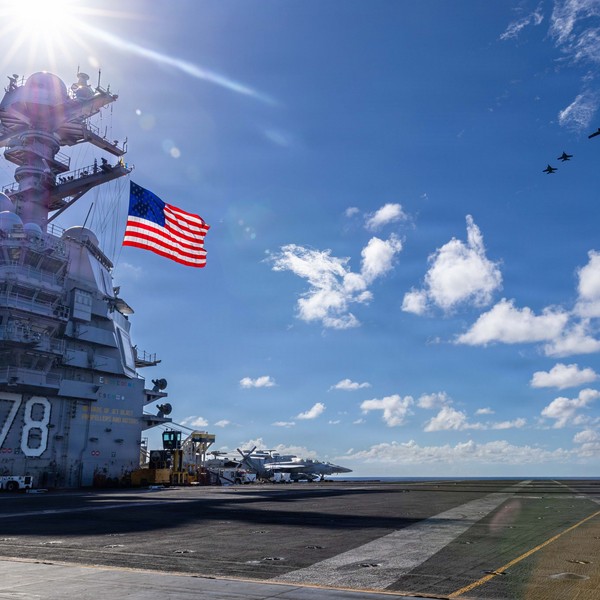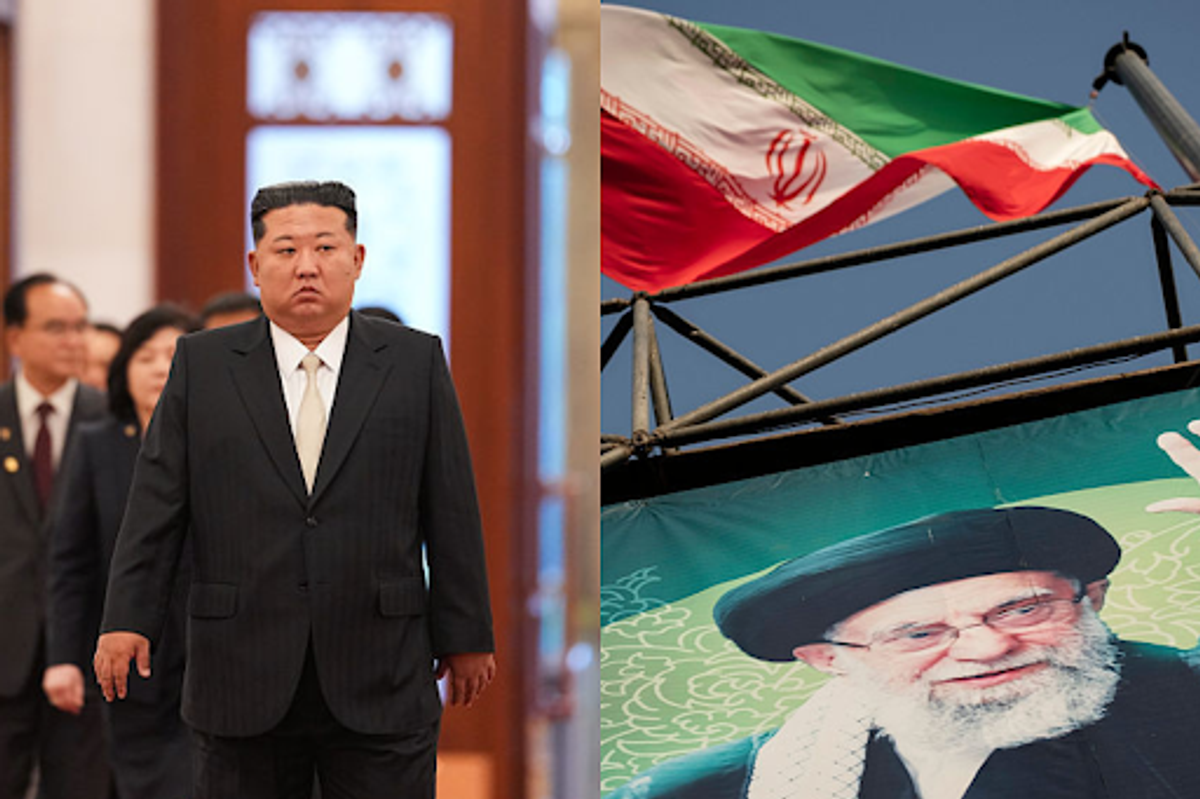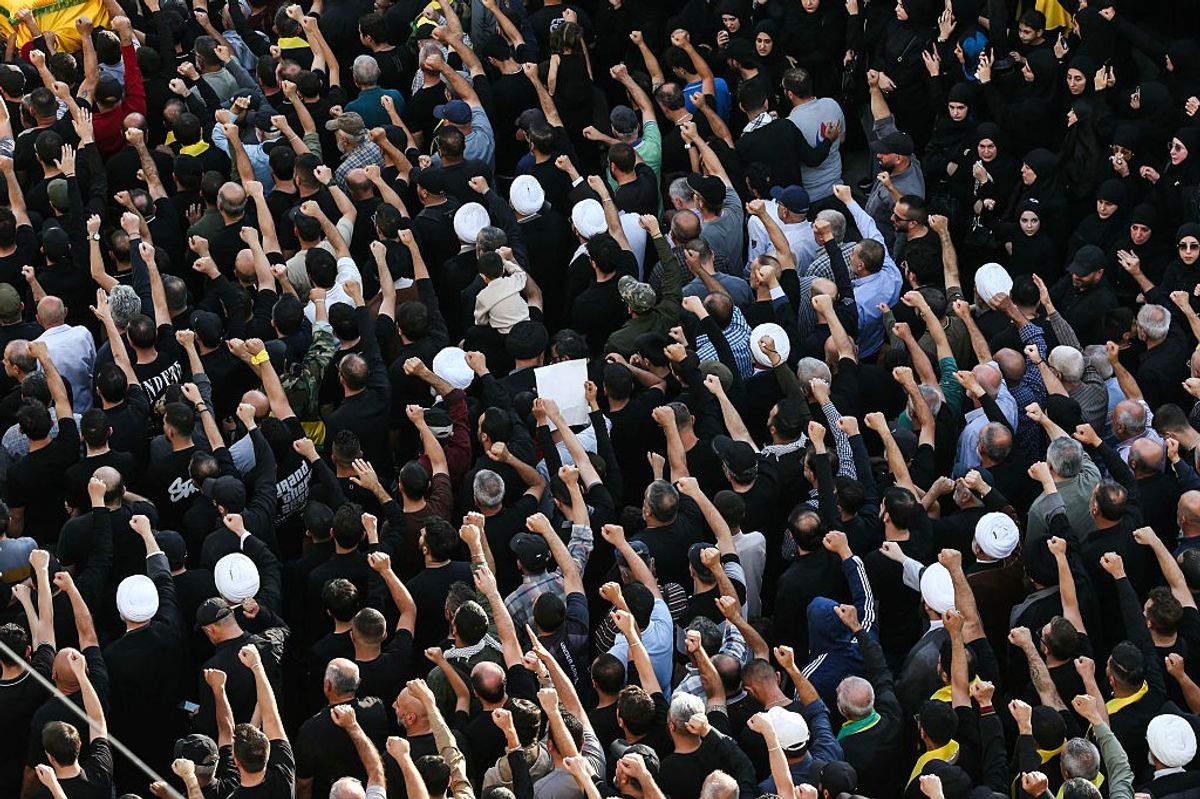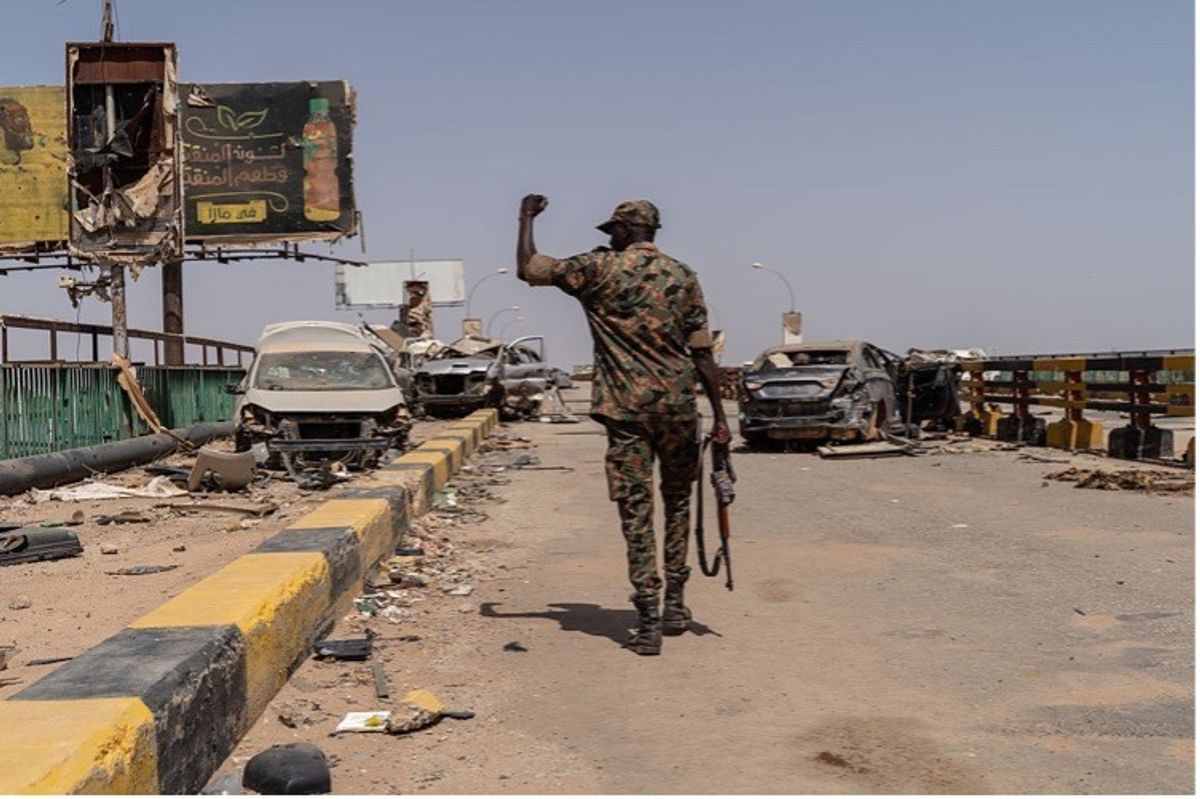EXPERT Q&A — The American force posture in the Middle East — some 40,000 troops spread across the region — came into focus following the 12-day war between Israel and Iran, and the U.S. strikes on Iranian nuclear sites. U.S. forces are deemed potential targets of retaliation and one U.S. airbase in Qatar did come under attack, albeit a largely symbolic one.
The Cipher Brief spoke with General Frank McKenzie (Ret.), who oversaw U.S. forces in the Middle East as the head of U.S. Central Command from 2019 to 2022, about the mission and vulnerability of U.S. troops in the region, and what might happen if they were to leave. Our interview has been lightly edited for length and clarity.
The Cipher Brief: The Iraq War is long over. The United States - in a coalition - defeated ISIS some time ago. The Afghan War is over. What is the mission or are the missions of all those troops that remain in the Middle East?
General McKenzie: I would argue that the fight against ISIS still goes on. We don't actually fight that fight ourselves, but we do support our partners both in Iraq and in Syria who continue to conduct operations against ISIS, which is now newly flourishing based on the turmoil in Syria. That may correct itself over the next few months with the new government, which I think is a good thing. So we're still in that fight a little bit. But to your basic question, our forces are there to train our partners in the region, to work with them, to provide assurance of American presence, and that's largely focused on Iran. Iran remains a singular threat in the region, and we've seen over the last few months, why we need to be very aware and alert to the threat from Iran.
The other thing is that while we do have a lot of forces in the region, they are distributed. We defended ourselves very effectively against an Iranian attack a few days ago. And forces also provide assurance to our neighbors while they deter action by our potential opponents. Our friends in the region can't leave. They're stuck there, so the fact that U.S. forces are there actually adds to their level of assurance that we'll be a reliable partner should Iran attack them.
The Cipher Brief: A good many of those American troops are there at the invitation, if not the request, of some of the Gulf states. That's of course not the case for different reasons in Iraq and Syria. To what extent is the U.S. presence, in your view, an answer to those kinds of requests? And to what extent is it strategically smart for the United States?
General McKenzie: It’s a combination of both. It certainly serves our interest to maintain a presence in the region. It certainly serves the interests of the Gulf States and other states that we be there in order to give them additional stability as they confront the threat from Iran. So I think it serves both our interests. We’re actually in Iraq at the invitation of the Iraqi government now. I think we have an ongoing negotiation process with the Iraqis about what our force posture is going to be. So we're in Iraq because the Iraqis want us to be there, not because we're forcing ourselves on the Iraqis.
The Cipher Brief Threat Conference is happening October 19-22 in Sea Island, GA. The world's leading minds on national security from both the public and private sectors will be there. Will you? Apply for a seat at the table today.
The Cipher Brief: Explain the distinction in terms of what the troops do between those Iraq and Syria deployments on the one hand and the Gulf State presence?
General McKenzie: First, we assure our friends that we're a reliable partner, that we're willing to help them if they're attacked by Iran. We could leave the region, and that's talked about fairly frequently. If we left the region and drew down dramatically, then that assurance component would go away and they would also be, as an effective operational matter, far more vulnerable to attacks from Iran. We've seen how willing Iran is to actually use their military to attack their neighbors over the last few months. That's the thing to cover when we look at why our forces are there: what effects do we derive? Assurance and deterrence against Iranian attacks.
I think those are all useful things because that keeps the flow of commerce through the region, moving through the Strait of Hormuz. We've reopened the Bab-el-Mandeb Strait recently. I believe commerce is eventually going to flow again, though that's going to take a little time as insurance companies test the waters about what the Houthis are going to be willing to do. But all of those things are very much in our national interest.
The Cipher Brief: Let's talk about the vulnerability of some of those forces. You've had all those forces under your command. How difficult a task is it to go from whatever the baseline force protection is to us now attacking the nation of Iran? What's the ramp up like in terms of security?
General McKenzie: We have exquisitely rehearsed and prepared plans to protect our forces. As the CENTCOM commander, you begin every day worrying about the force protection level of U.S. forces in the region, our embassies in the region, our American citizens in the region, as well as our friends and partners. So you look at that every day and you balance it against what the Iranians are doing. We have very good ways of knowing what the Iranians are thinking about and what they plan to do. So as we saw recently, we are typically able to adjust and prepare for that. The risk is always that you'll get it wrong or they'll get lucky, and we know and understand that. But we work very closely with forces in the region to ensure they're prepared for these types of things. It's a battle drill. It is an onerous thing to do. You're leaving the comfortable places you live. You're going to places that are certainly less comfortable, albeit for a short period of time, but it's one of the best ways we can effectively save the Iranians from themselves. If they were to attack us and cause significant U.S. casualties, then the potential for upward escalation is very high. We always say the Iranians own the lower steps on the escalation ladder. We own all the higher steps on the escalation ladder. Every CENTCOM commander spends a lot of time looking at that.
Everyone needs a good nightcap. Ours happens to come in the form of a M-F newsletter that keeps you up to speed on national security. Sign up today.
The Cipher Brief: What would go away for the United States if those troops were to come home or go elsewhere?
General McKenzie: It's a careful calibration. You may not need as much as you've got right now. You need the ability to flow them back in very quickly if you elect to pull forces out. But what we have right now is an Iran that is effectively deterred. They chose not to launch a massive attack on us. Instead, they launched a very choreographed attack, and if we're to believe reporting, that was telegraphed well in advance because they did not want to get into significant combat with the United States — because they know and understand our capabilities. That's what these forces bring. To draw down precipitously would possibly undo that deterrent effect.
On the other hand, and this is something that really only the president of the United States can balance, he's a president who has struck Iran twice — [Quds Force Commander, General] Qassem Soleimani back in 2020, and now this most recent attack. President Trump possesses extraordinary credibility with the Iranians because he's taken bold action two times, which puts him in a unique position that no other American president has had going back several administrations.
The Cipher Brief: Do you think that President Trump might have some success in bringing Israeli Prime Minister Benjamin Netanyahu to a place that looks more like a ceasefire in Gaza and a deal in Iran?
General McKenzie: Short answer is, I don't know. I do know that we and Israel both share the same objective with Iran. We don't want them to have a nuclear weapon, and I'm sure there's going to be a lot of discussion on that, a lot of assessment. How effective were the strikes? Where are we? What needs to be done? I would assume they're going to spend a fair amount of time talking about that. But I would also say the same thing I said about President Trump and Iran. That same credibility probably extends to his relationship with Israel and the way going forward. So I'll watch with great interest to see what comes out of those meetings next week.
Are you Subscribed to The Cipher Brief’s Digital Channel on YouTube? There is no better place to get clear perspectives from deeply experienced national security experts.
Read more expert-driven national security insights, perspective and analysis in The Cipher Brief because National Security is Everyone’s Business.















